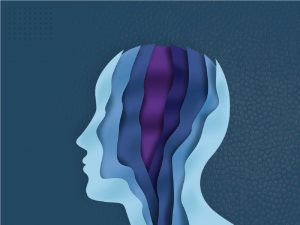Neuropsychology is a specialised field that offers a unique blend of psychology and neuroscience, providing insights into how our brain functions affect our behaviour and cognition. This blog will serve as a comprehensive guide to understanding neuropsychology, the career opportunities it presents, its scope in India, the skills required, and the steps to pursue a career in this fascinating field.
After completing a master’s in psychology, individuals can step into neuropsychology to explore the intricate connections between the brain and behaviour.
Introduction to Neuropsychology
Neuropsychology studies the brain’s impact on behavior and cognitive processes. It is a discipline that bridges the gap between understanding the neurological underpinnings of psychological phenomena and applying this knowledge to clinical practice. Neuropsychologists work with patients who have suffered from brain injuries, neurological diseases, or developmental disorders, employing various assessment tools to diagnose and devise treatment plans.
What is Neuropsychology?
At its essence, neuropsychology is concerned with the intricate connections between the brain and behavior. It involves the application of principles from both neurology and psychology to understand how changes in brain structure and function can influence a person’s cognitive abilities and behaviors. This field is pivotal in diagnosing and treating conditions such as Alzheimer’s disease, stroke, traumatic brain injury, and learning disabilities.
Major Career Opportunities in Neuropsychology
A career in neuropsychology can be incredibly rewarding, offering a range of opportunities to work in clinical settings, research, academia, or private practice. If you want to know how to become a neuropsychologist, there are several steps you can take to get started. First, you’ll need to earn a doctoral degree in psychology, such as a PhD in neuropsychology in India. This typically involves completing coursework, practicum experiences, and an internship. After graduation, you must complete a postdoctoral fellowship in neuropsychology before becoming licensed to practice.
Discover a range of career in Neuropsychology options –
- Clinical Neuropsychology: Practitioners in this area focus on assessing and treating individuals with neurological disorders. They conduct comprehensive evaluations to understand the impact of brain injuries or diseases on cognitive function and behavior. Clinical neuropsychologists often work in hospitals, rehabilitation centers, or private clinics.
- Research and Academia: Neuropsychologists contribute significantly to scientific knowledge by researching brain function, cognition, and disorders. Opportunities exist in universities, research institutions, and laboratories, allowing professionals to explore and advance our understanding of the brain.
- Therapy and Counseling: Some neuropsychologists specialize in providing therapeutic interventions for individuals with cognitive and neurological challenges. They may collaborate with other healthcare professionals to develop and implement treatment plans.
- Forensic Neuropsychology: This specialized field involves applying neuropsychological expertise to legal cases. Professionals may evaluate individuals involved in legal matters to assess their cognitive functioning and provide insights into how neurological factors may impact behavior.
Scope of Neuropsychologist Profession in India
Neuropsychology scope in India is expanding, with increasing demand and recognition for professionals in this field.
- Increasing Demand: There is a rising demand for qualified neuropsychologists in Indian hospitals, rehabilitation centers, and academic institutions. As awareness about mental health and cognitive rehabilitation grows, so does the need for professionals who can address these concerns.
- Recognition and Awareness: The career in neuropsychology in India is gaining recognition. As society becomes more aware of the intricate connection between brain health and overall well-being, the importance of neuropsychological services is acknowledged.
- Collaboration with Healthcare Professionals: Neuropsychologists in India have opportunities to collaborate with other healthcare professionals including neurologists, psychiatrists, and rehabilitation specialists. This interdisciplinary approach enhances the effectiveness of interventions and promotes a holistic approach to patient care.
- Research and Education Initiatives: As academic institutions in India focus more on neuroscience and mental health, neuropsychologists have increased opportunities to engage in research and contribute to educational initiatives.
- Competitive Neuropsychologist Salary: The profession offers a competitive salary, reflecting the specialized skills and expertise required in neuropsychology. As the demand for neuropsychological services rises, professionals can expect rewarding remuneration that recognizes their crucial role in the healthcare ecosystem.
Skills That a Neuropsychologist Needs
To excel as a neuropsychologist, one must possess certain skills like-
- Solid Foundation: Build a strong understanding of psychological theories and neuroscientific research, laying the groundwork for success in neuropsychology.
- Critical Thinking: Develop keen critical thinking skills to analyze complex cases and draw meaningful conclusions, contributing to the advancement of the field.
- Empathy: Foster a high level of empathy to connect with individuals facing neurological challenges, establishing trust and rapport in your professional relationships.
- Patience: Exercise patience, recognizing that progress in neuropsychological interventions may take time, particularly in cognitive rehabilitation scenarios.
- Clear Communication: Hone clear and effective communication skills to convey complex neurological concepts in an understandable manner, whether dealing with clients and colleagues or presenting research findings.
- Testing Proficiency: Master administering and interpreting neuropsychological tests, a fundamental skill for accurately assessing cognitive function and tailoring interventions.
- Continuous Learning: Stay informed about the latest research in neuropsychology, ensuring that your practice reflects current insights and methodologies. Cultivating these skills enhances your effectiveness as a neuropsychologist and contributes significantly to the well-being and understanding of individuals facing neurological issues.
Understanding Neuropsychiatry: Bridging Mind and Brain
Neuropsychiatry is a medical field that merges the expertise of neurology and psychiatry to address and treat mental disorders that have a definitive neurological origin. The neuropsychiatry meaning encompasses this holistic approach to understanding and managing conditions that affect both the mind and the brain. It differs from neurology and psychology in that it specifically targets the psychiatric aspects of neurological disorders. The difference between neurologist and psychologist is significant; neurologists focus on the physical aspects of the nervous system, while psychologists deal with mental health and behavioral issues. As for professionals in this field, a neurophysiologist salary can vary widely based on factors such as location, experience, and the complexity of the cases they handle. Those interested in the broader field of neuroscience might consider how to become a neuroscientist, which typically involves extensive education and research, leading to a deep understanding of the nervous system and its impact on human behavior.
How to Make a Career in Neuropsychology
Starting a career in neuropsychology requires a dedicated educational path. After completing a bachelor’s degree in psychology, aspiring neuropsychologists in India should pursue a master’s degree in neuropsychology or clinical psychology. A PhD in neuropsychology in India can further enhance one’s expertise and open up opportunities for advanced research and teaching positions. Practical experience through internships and residencies is also crucial.
In conclusion, neuropsychology is a dynamic and evolving field with a promising future, especially in India. To excel in this profession, aspiring neuropsychologists must be prepared for rigorous academic training and continuous learning. With dedication and the right skill set, a career in neuropsychology can be both intellectually stimulating and immensely rewarding. The journey to becoming a neuropsychologist is one of dedication, passion, and a commitment to improving the lives of individuals with neurological conditions. It is a path that promises both personal fulfillment and professional growth.
O.P. Jindal Global University- Jindal School of Psychology & Counselling
Aspiring psychologists seeking a transformative educational experience need look no further than O.P. Jindal Global University (JGU) and its renowned Jindal School of Psychology & Counselling (JSPC). Explore a comprehensive curriculum, learn from esteemed faculty, gain real-world experience through internships, and develop critical thinking skills—all in a vibrant academic environment that fosters personal growth. Start your fulfilling journey in psychology at JGU!




